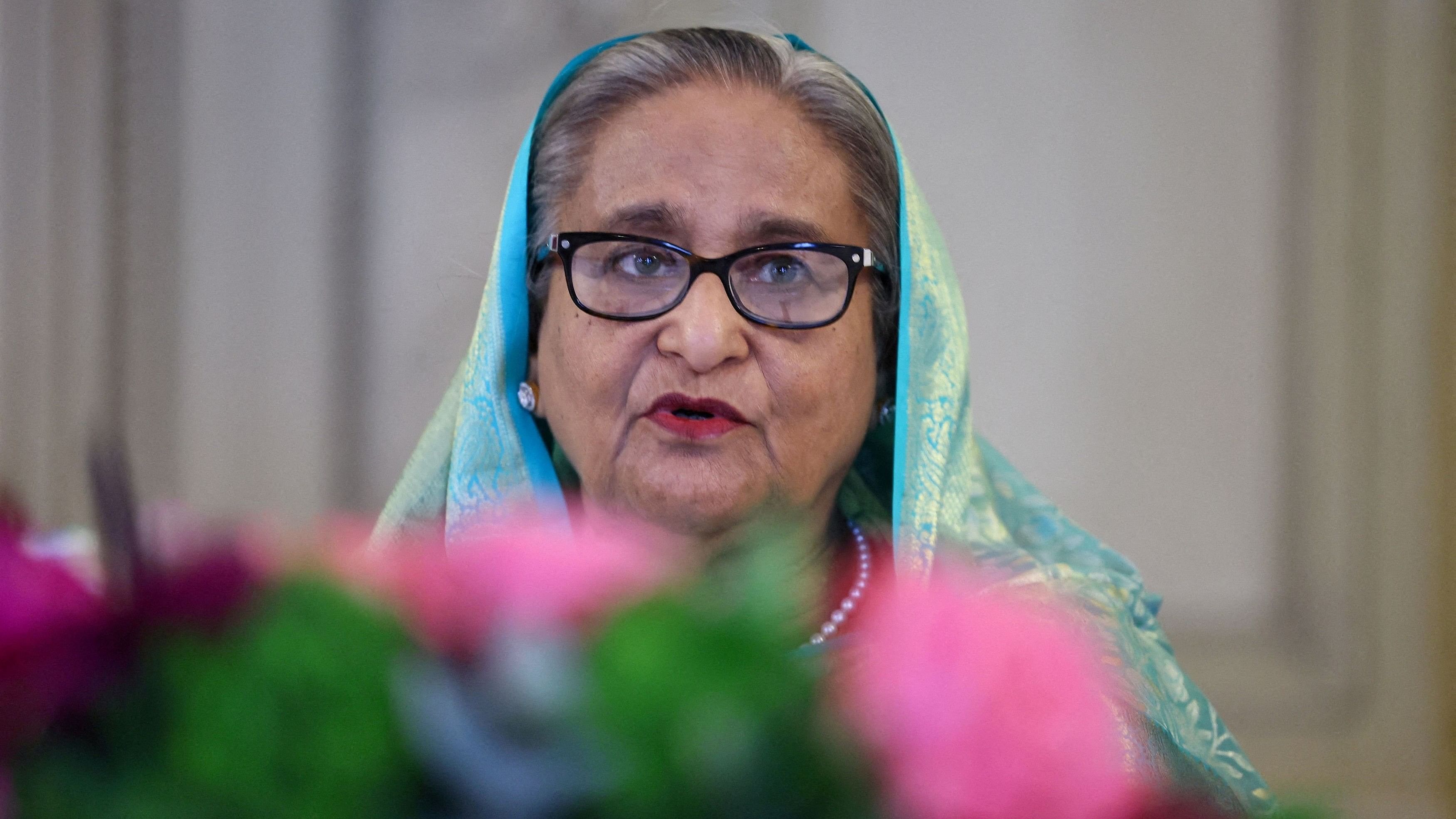
Ex-Bangladesh Prime Minister Sheikh Hasina.
Credit: Reuters File Photo
New Delhi: After stepping down as prime minister and leaving Dhaka on a transport aircraft of Bangladesh Air Force, Sheikh Hasina landed at the Indian Air Force base at Hindon near New Delhi on Monday, although Prime Minister Narendra Modi’s government did not make public how long she would be staying in India.
She might fly to Finland or the United Kingdom as New Delhi might not be keen to host her for long this time, unlike in 1975 when she and her sister Sheikh Rehana had been secretly flown in from Berlin after the assassination of their father and founder of Bangladesh, Bangabandhu Sheikh Mujibur Rahaman, in Dhaka. They had lived at a safe house of the intelligence agencies at Pandhara Road in New Delhi for six long years as the guests of Prime Minister Indira Gandhi’s government.
New Delhi, however, is unlikely to extend the same courtesy to her this time as such a move could further give the radical elements in Bangladesh an opportunity to add momentum to their campaign against India.
The officials of the IAF and other agencies of the Government of India received her after the aircraft with Hasina, Rehana as well as others close to the family onboard landed at the airbase in Hindon. Modi’s National Security Advisor Ajit Doval also called on the supremo of the Awami League party of Bangladesh.
Doval and External Affairs Minister S Jaishankar attended a meeting of the Cabinet Committee of Security chaired by Prime Minister Modi to assess the evolving situation in Bangladesh and the implication of the situation in the neighbouring country for its relations with India. The security along the India-Bangladesh border has also been reviewed.
With the interim regime, which will now succeed the Awami League government in Dhaka, likely to include the Jatiya Party, Bangladesh National Party, and Bangladesh Jamaat-e-Islami, New Delhi is worried over the future course of its relations with the neighbouring country. The BNP and Jamaat-e-Islami in the past criticised Hasina’s government for being excessively friendly to India as well as for ‘undermining the sovereignty’ of Bangladesh by allowing India transit connectivity through the country to link its mainland with its northeastern states.
Jaishankar may make a statement in both Houses of Parliament on Tuesday about the evolving situation in Bangladesh and the response of India.
New Delhi is concerned over reports of vandalisation of the Indira Gandhi Cultural Centre run by the Indian Council of Cultural Relations at Dhanmondi in Dhaka as well as of attacks on the shrines of the minority community across Bangladesh on Monday.
The external affairs minister had a brief meeting with the Leader of the Opposition and the Congress leader, Rahul Gandhi, at the Parliament House complex on Monday about the options for New Delhi.
Hasina left New Delhi just about an hour before her official residence ‘Gana Bhavan’ in Dhaka was stormed by mobs, protesting against her government’s crackdown on the students and youths campaigning against the reservation in public sector jobs. She flew by chopper to a Bangladesh Air Force base and boarded the C130J military transport aircraft.
Sources told DH that Hasina’s flight from Dhaka to New Delhi was coordinated by the security agencies of both India and Bangladesh. The IAF fighter jets escorted the Bangladesh Air Force’s C130J aircraft to Hindon after it entered the airspace of India.
The Modi government would facilitate her transit through India to the United Kingdom or Finland, in view of the historic relations between the two nations and her role in putting New Delhi’s ties with Dhaka on a positive trajectory after commencing her second term as prime minister of Bangladesh in January 2009.
India has been closely and cautiously monitoring the situation in Bangladesh ever since the protests by the students against quota in government jobs in the neighbouring country turned violent. The anti-India elements in Bangladesh also infiltrated into the groups running the nationwide protests against quota as well as against the brutal crackdown by the government and its security forces on the protesters over the past few weeks, according to the reports received in New Delhi.
After nearly 100 people were killed in clashes between protesters and security personnel across Bangladesh on Sunday, India strongly advised its citizens to avoid traveling to the neighbouring country. The Ministry of External Affairs (MEA) issued an advisory asking Indians already in Bangladesh to exercise extreme caution. Nearly 4500 Indians, mostly students, returned from Bangladesh last month after the protest by students and youths and the police crackdown on them triggered unrest.
Hasina had over the past 16 years reversed the policy of the erstwhile BNP government led by Khaleda Zia in Dhaka to allow the insurgent outfits operating in the northeastern states of India to set up camps in Bangladesh. The covert cooperation between the security agencies of the two neighbouring countries resulted in the arrest of several leaders of insurgent outfits in the northeastern states of India from their hide-outs in Bangladesh in 2009 and 2010. Several connectivity projects got rolling, promising economic boon for both Bangladesh as well as the landlocked northeastern states of India.
